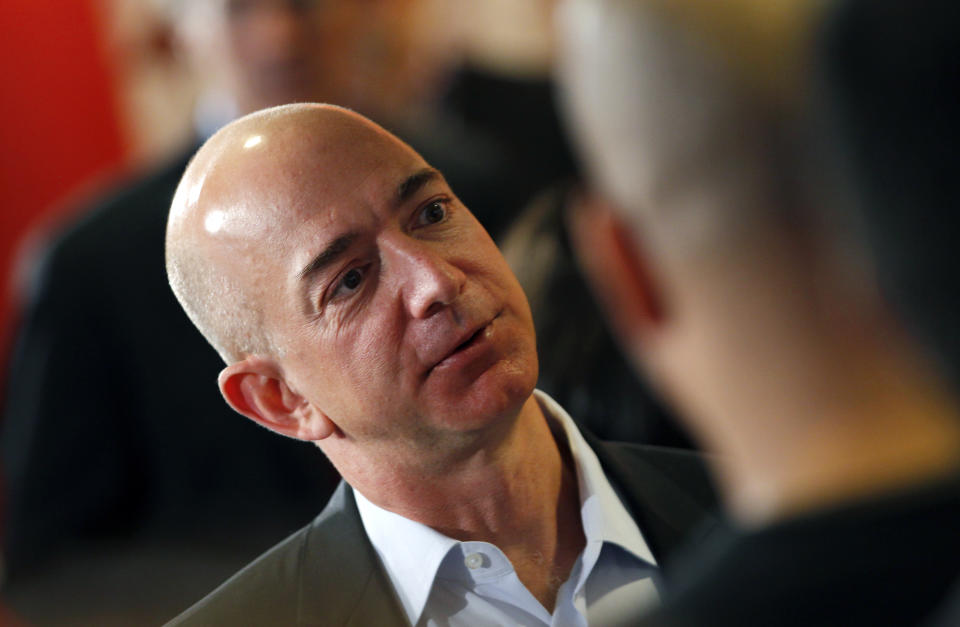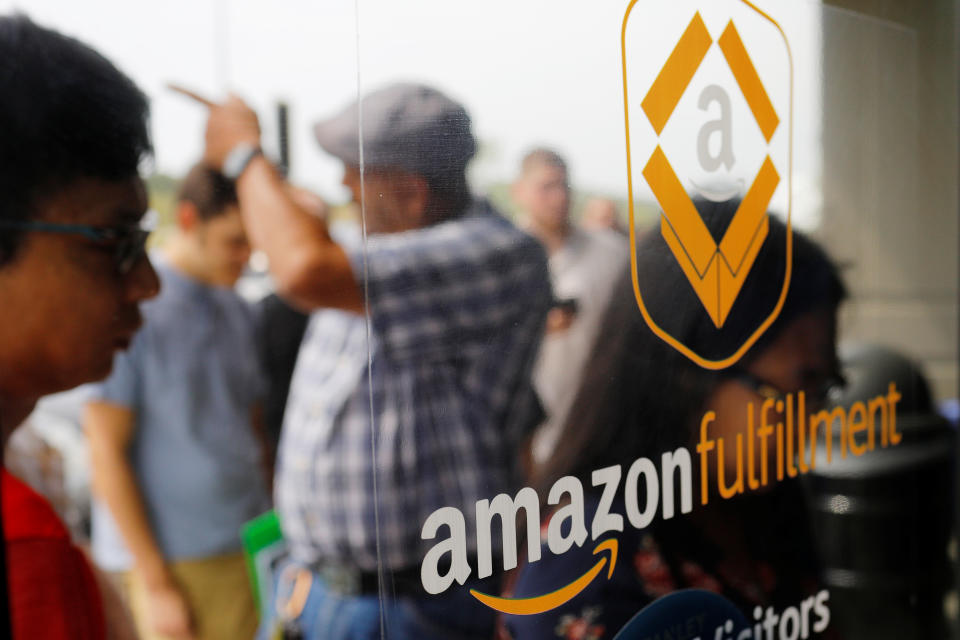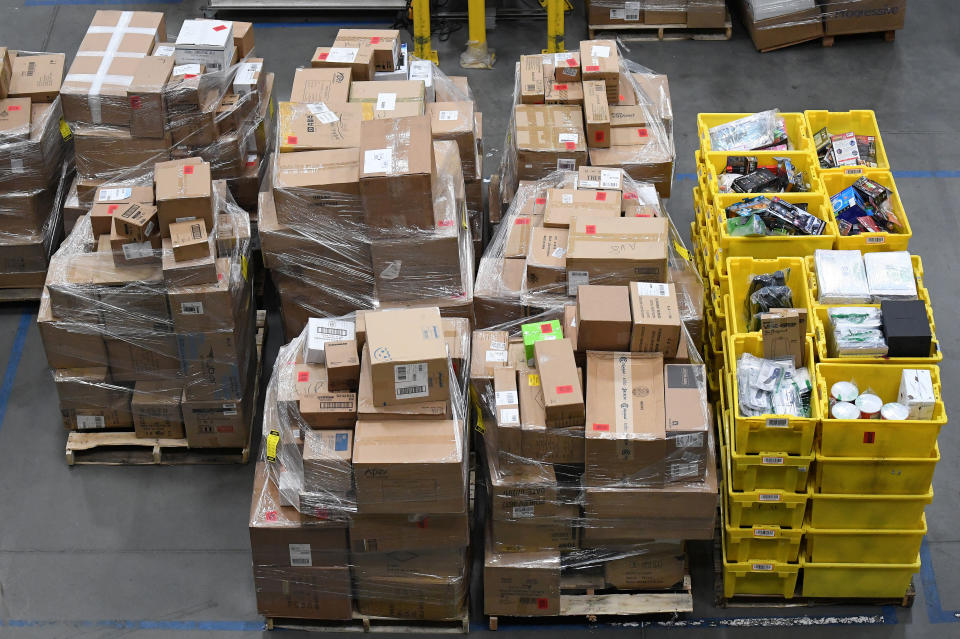This South Carolina court ruling could give Amazon 'significant additional tax liabilities'

President Donald Trump has criticized Amazon for supposedly paying “little to no taxes” to state and local governments. Now that the e-commerce giant is collecting sales and use tax on behalf of third-party sellers as required by some states, it may need to do even more.
A state tax court decision in South Carolina this week ruled for the first time that Amazon needs to make up for the taxes it hasn’t collected for years. This decision from South Carolina could be an impetus for other states to go after the commerce giant and other online marketplaces for uncollected state taxes.
“I think it would embolden states to move forward on this theory because they've seen at least one court administrative law judge who wrote a very lengthy decision,” said John Swain, a tax law professor at the University of Arizona.
In a statement, Amazon said the court decision is “inconsistent with the facts established at trial and the applicable law.” The e-commerce giant has warned investors that states going after it for back taxes like South Carolina could be a blow to its business.
“If South Carolina or other states were successfully to seek additional adjustments of a similar nature, we could be subject to significant additional tax liabilities. We intend to defend ourselves vigorously in this matter,” Amazon said in its quarterly report in July.
Retroactive tax collection

In a ruling on Tuesday, Judge Ralph Anderson III upheld a decision by the South Carolina Department of Revenue (DoR) that Amazon owes sales tax on goods sold by out-of-state third-party merchants on the retailer’s website, as he believes that Amazon is a retailer that is responsible for collecting taxes.
The DoR originally sought nearly $12.5 million, including interest and penalties, for the first quarter of 2016. But the actual amount could be much larger. It could cover the state’s estimated loss during at least 13 quarters from 2016 to April 2019, according to a spokesperson at the DoR.
So far, taxation departments in other states haven’t gone to court to collect past tax losses from Amazon. Moreover, Amazon has been able to gain tax exemption in some states in return for its job creation and investment pledges.
Walmart, another retail giant, is fighting a similar battle in Louisiana Supreme Court after a lower court ruled Walmart.com owed Jefferson Parish about $140,000 in uncollected taxes, plus interest and legal fees for uncollected sales tax on its online marketplace.
There is pushback against states that are trying to collect past taxes. Tax Foundation, a Washington-based think tank, said “retroactive tax collection from out-of-state sellers and marketplace facilitators is unconstitutional.” But some argue not collecting sales taxes in the past has given online marketplaces like Amazon an unfair price advantage over local businesses. On this basis, Stan Grosz, a California businessman, is suing the California Department of Tax and Fee Administration for its failure to make Amazon pay the state billions in uncollected sales taxes.
Following a Supreme Court decision last year that made it easier for states to require merchants to collect sales taxes for online purchases, over 30 states, including South Carolina enacted tax laws to explicitly require online marketplace operators like Amazon to pay state taxes for third-party sellers going forward.
The South Carolina ruling highlights how states can pressure Amazon to pay for taxes in a past period. The wording in South Carolina’s legislation leaves room for the state to go after Amazon for the past period, according to Professor Swain.
“You'll see they were generally very careful in trying to suggest that passing platform legislation doesn't mean they didn't have authority before the legislation that it was clarifying,” Swai said.
If Amazon appeals the decision, the case will be heard by the South Carolina Court of Appeals.
A seller or a facilitator?

In the 54-page ruling from the South Carolina Administrative Law Court published on Tuesday, the judge refuted Amazon’s argument that it’s merely a facilitator between merchants and consumers.
The ruling says Amazon handles payment, order confirmation, receipts, shipping, and customer service for third-party products on its marketplace, so it should be considered as the seller, even though it doesn’t technically own the merchandise.
“Although these restrictions do not individually establish that Amazon Services is the seller or in the business of selling Merchant products, together they reflect Amazon Services’ extensive level of control over transactions on the Marketplace,” Judge Anderson wrote.
Being defined as a retailer could have broad implications for the e-commerce giant, which runs an online marketplace for over 2.5 million merchants that generated $43 billion in seller service revenue in 2018. Up for debate in the courts: If Amazon is defined as a retailer states could decide whether the company needs to pay back sales tax for the third-party sellers or be held responsible for the product's safety issues sold by third-party sellers.
Paul Rafelson, one of Grosz’s attorneys, says the South Carolina decision is a test case that other states are watching, as some may be hesitant about draining resources to sue big companies like Amazon.
“The ruling really saves every state attorney a lot of time because it gives them that all they need to focus on is making Amazon a seller,” Rafelson said. “Every state should be looking at Amazon to go get that money. It’s obvious that they have to do it.”
Correction: If Amazon appeals, the case will be heard by the South Carolina Court of Appeals. The previous version of the story stated it would be heard by the Supreme Court of South Carolina.
Write to Krystal Hu via [email protected] or follow her on Twitter.
Read more:
We entered the multi-million dollar business behind your Amazon returns
Chinese nationalists hijack pro-Hong Kong protest T-shirt listings on Amazon
Read the latest financial and business news from Yahoo Finance
Follow Yahoo Finance on Twitter, Facebook, Instagram, Flipboard, SmartNews, LinkedIn, YouTube, and reddit.

